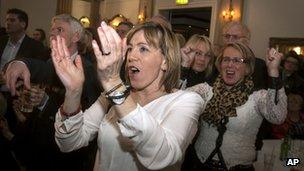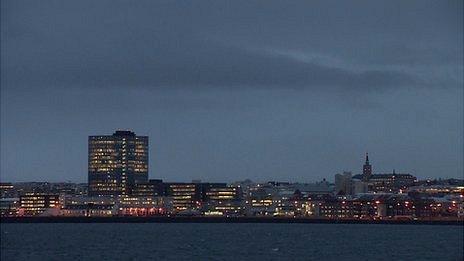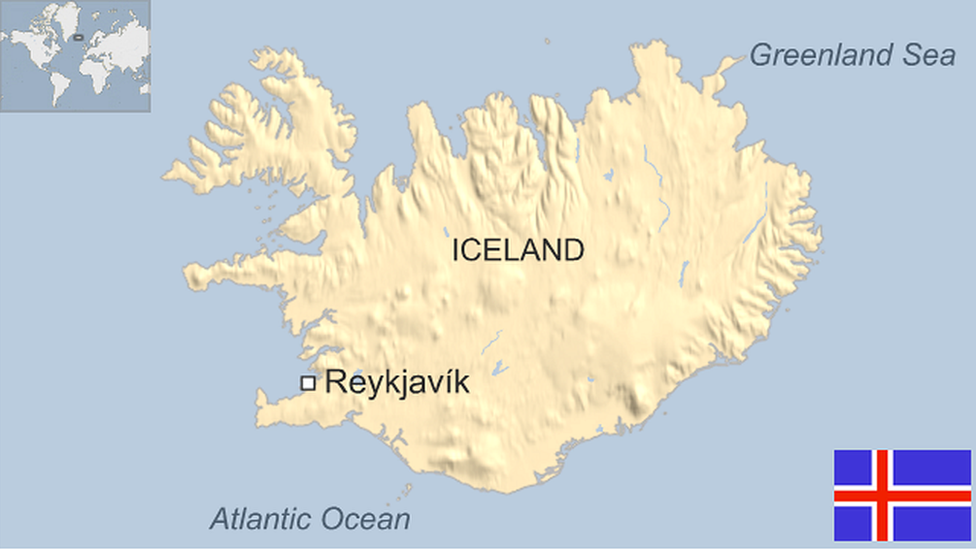Iceland vote: Centre-right opposition wins election
- Published

Gunnlaugsson (l) and Benediktsson look set to form a government coalition
Centre-right opposition parties in Iceland are set for a return to power with all the votes counted after Saturday's parliamentary election.
The Independence party polled 26.7% and the Progressive party 24.4%, putting them on track to win 38 of the 63 seats.
The ruling Social Democrats' share of the vote dropped to below 13%.
It is a dramatic comeback for the parties widely blamed for Iceland's economic meltdown in 2008.
Iceland saw its prosperity evaporate, as the country's three banks collapsed, and the Social Democrats came to power a year later, with a programme of austerity tailored to international lenders' requirements.
'New investments'
"The Independence party has been called to duty again," said leader Bjarni Benediktsson, who looks likely to become prime minister.
"We've seen what cutbacks have done for our healthcare system and social benefits... now it's time to make new investments, create jobs and start growth," he said.
But the party seen as the major winner of the election was the Progressives, whose vote almost doubled. "I'm very pleased," said leader Sigmundur David Gunnlaugsson.
The centre-right camp has promised debt relief and a cut in taxes.
The two leading parties, which will now enter coalition negotiations, are also seen as Eurosceptic, and their poll success could slow down Iceland's efforts to become a member of the European Union.
The Eurosceptics argue that Iceland already gets most of the benefits of full membership through existing free trade arrangements with the EU and by being part the Schengen visa-free travel zone.
Many Icelanders have become frustrated with the outgoing Social Democrat government, saying that its austerity policies were too painful.

Progressive party supporters celebrated their result
Two new parties performed particularly well: Bright Future, which won six seats, and the Pirate party, with three.
The Social Democrats saw their share of the vote fall dramatically to 12.9% (nine seats) while the Left-Greens' vote fell to 10.9% (seven seats).
Social Democrat leader Arni Pall Arnason, while disappointed, refused to acknowledge that the two centre-right parties had been given a major vote of confidence. "Their democratic mandate to change society is absolutely zero," he said.
- Published7 January 2013

- Published25 October 2024

- Published30 September 2011
